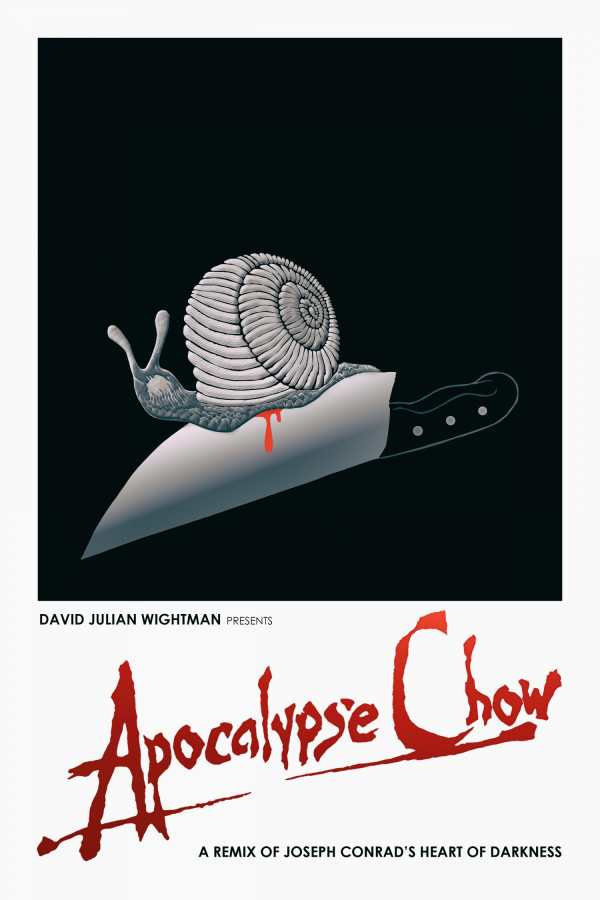
Apocalypse Chow
A Remix of Joseph Conrad's Heart of Darkness
Fans of Heart of Darkness, Apocalypse Now, and fine dining will enjoy this culinary, parodying romp.
Inspired by his restaurant work experiences, David Julian Wightman reworks elements of Heart of Darkness and Apocalypse Now into a funny, foodie-gone-crazy adventure.
Wightman uses both the film and the novella to form the framework of Apocalypse Chow, the tale of a renegade chef at a remote eatery in the Northern Ontario woods, who breaks contact with his retaurant’s owners. Marlow, a man with a long history of restaurant service, is hired by the brothers who own Chow to travel to the restaurant and fire Kurtz.
The influences of Coppola’s film and Conrad’s book are ubiquitous, albeit tweaked for a culinary theme. During their trip, Marlow and his companions are assaulted by flying cutlery, not arrows. Instead of actor Robert Duvall’s “I love the smell of napalm in the morning,” Wightman’s Kilgore is a veteran who drives a food truck and says “I love the smell of bacon in the morning.” And Kurtz, at story’s end, utters not “The horror!” but “The hunger!”
These alterations are amusing, if perhaps a bit obvious. Luckily, there’s more depth to Apocalypse Chow than one might expect from a book that, on the surface, presents itself as a simple parody or “remix.” Wightman uses not just The Doors’s song “The End,” as famously featured in Apocalypse Now, but also T. S. Eliot’s “The Hollow Men,” a poem that refers to Heart of Darkness and is read by Marlon Brando as Kurtz in the film.
Although tinged with the absurd, the book works because Wightman develops Chef Kurtz so convincingly. Kurtz has turned his back on the establishment and found refuge in sustainable, locally sourced ingredients—a phenomenon readily observed in restaurants in every big city in the United States. When Kurtz’s philosophy is described to Marlow, it’s both amusing and moving, an exaggeration based in noble motives that also pokes fun at the self-seriousness of celebrity chefs.
Just as Conrad’s experience commanding a steamer in the Congo informs Heart of Darkness, Wightman’s own work experience (along with independent research) enhances Apocalypse Chow, and anyone who’s worked in the food industry will appreciate the detail of his descriptions, particularly with regard to Kurtz’s menus.
Although Marlow recounts nearly the entire story, it’s filtered through a third party who doesn’t seem to add anything essential to the book. The price for a non-direct account from Marlow is that most of the book’s dialogue is a series of quotes within quotes, which, rather than imparting the feel of an intimate story, serve more as a distraction.
Nonetheless, Apocalyse Chow captures the spirit of its predecessors and adds a sense of humor that casts some light into the darkness. Fans of Heart of Darkness, Apocalypse Now, and fine dining will enjoy this book.
Reviewed by
Peter Dabbene
Disclosure: This article is not an endorsement, but a review. The publisher of this book provided free copies of the book and paid a small fee to have their book reviewed by a professional reviewer. Foreword Reviews and Clarion Reviews make no guarantee that the publisher will receive a positive review. Foreword Magazine, Inc. is disclosing this in accordance with the Federal Trade Commission’s 16 CFR, Part 255.
